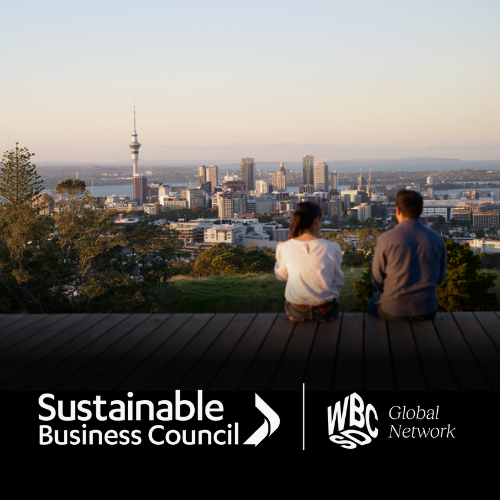Business supports mandatory sustainability reporting, says new CSR survey
Almost half the Kiwi respondents to the leading annual study of corporate social responsibility practices say sustainability reporting should be mandatory.
The ninth Annual Review of the State of CSR in Australia and New Zealand found that almost half (48%) of New Zealand respondents support mandatory sustainability reporting for large companies.
The 2017 Annual Review of the State of CSR in Australia and New Zealand is published by the Australian Centre for Corporate Social Responsibility (ACCSR), and is the largest ongoing longitudinal study of CSR practices down under. This year there were 1,215 respondents, a 12 percent increase on 2016.
It’s the fifth year New Zealand businesses have been involved, and this year the Review drew 359 responses, a whopping 58 per cent increase on last year’s response.
Nikki Wright, Managing Director of Wright Communications, who coordinated the New Zealand participation in association with the Sustainable Business Council and Massey University, says this result was pleasing.
“Our results are consistent with global trends, where over 50 countries have introduced some form of regulatory sustainability reporting instrument.
“Pointedly, the highest priority CSR issue (82%) for the year ahead is managing regulatory impact.
“This reflects the changing regulatory environment in New Zealand with the NZX’s revised Corporate Governance Best Practice Code which represents a significant step forward for corporate governance reporting requirements in New Zealand.
“There is a ‘report or explain’ approach against eight principles to improve corporate disclosure about ESG risks and mitigating factors.”
The updated NZX Code will take effect from 1 October2017 so that it must be reported against for reporting periods ending 31 December 2017 and beyond.
Sustainable Business Council Executive Director Abbie Reynolds says the results reflect the increasing number of New Zealand companies integrating sustainability practices into their business.
“Every year I see more and more New Zealand businesses report and share their financial, social and environmental plans and performance. These survey results are in line with a global shift toward greater transparency – many businesses recognise this is global best practice”.
Other key priorities are building stronger relationships with our stakeholders (76%) closely followed (74%) by managing the implications of technology (e.g. data security, privacy).
The Review also names the CSR Top 3 in New Zealand,being the companies with the strongest management capabilities for CSR, as rated by their employees. The assessment reflects the perceptions of employees in these organisations of their capabilities in stakeholder engagement, stakeholder values attunement, dialogue and social accountability.
The CSR Top 3 New Zealand are:
- Air New Zealand
- Toyota
- Westpac
Ms Reynolds says it’s great to see so many Sustainable Business Council members being recognised for their work.
“It comes as no surprise that Toyota, Westpac and AirNew Zealand have taken the top three places in the Annual State of CSR review.These three companies are consistently top performers across all sustainability measures.”
“They are very active members of the Sustainable Business Council – having embedded sustainability in their business.Congratulations to them for this recognition of their great work”.
The Annual Review also shows that the Sustainable Development Goals are gathering pace. Companies are using them to inform business strategy as well as sustainability strategy and commitment is coming from the highest levels of the organisations.
The top five Goals being addressed by companies are:
- Gender Equality
- Decent Work and Economic Growth
- Climate Action
- Good Health and Wellbeing
- Responsible Consumption and Production
Gender equality was the highest ranked goal, with 66%of respondents declaring their organisations are planning to address this issue.
Ms Wright says: “Gender equality remains a strong focus for businesses with the number and proportion of women in senior leadership positions across the private and public sector firmly in the public discourse.
“This result may also be a response to the growing body of research suggesting that more diverse boards and workforces lead to improved outcomes for businesses.”
The Review is being launched at a function for survey participants in association with Sustainable Business Council members in Auckland.
Project partners locally are Massey University, Sustainable Business Council and Wright Communications.
Contact: Renee Graham, Communications Manager
Phone: +64274559104
Email:

